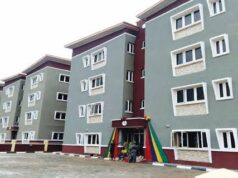
The real estate sector in Nigeria has surpassed crude oil and natural gas, becoming the third largest contributor to the nation’s Gross Domestic Product (GDP) after the Nigeria Bureau of Statistics (NBS) adjusted the GDP to the base year of 2019.
As stated in the GDP report released by the NBS on Monday, the real estate sector’s contribution to the economy increased from N22 trillion (6.24 percent) based on earlier estimates to N41.2 trillion (10.78 percent) in the 2024 rebased figures, positioning it right after crop production and trade.
The process of rebasing, aimed at refreshing a nation’s data to reflect its present situation and evolving factors, showed that agriculture and trade continue to be the primary contributors to Nigeria’s GDP, accounting for N61.9 trillion (17.58 percent) and N67.9 trillion (17.42 percent) respectively.
At the same time, telecommunications strengthened its role as the fourth major contributor with N25.4 trillion (6.78 percent), whereas crude petroleum and natural gas fell to fifth place, contributing N14.6 trillion (5.85 percent) to the GDP, down from third position before the GDP rebasing process.
Real estate, representing the third largest sector in Nigeria’s economy, made up 10.78 percent of the GDP, a figure the NBS linked to improved monitoring of the informal real estate sector.
The report indicated that “when GDP estimates are adjusted to the 2019 base year, real estate moved to third place, pushing crude oil and natural gas to fifth. ”
“This results from improved oversight of the informal real estate sector. ” “The leading five sectors include crop production at 17.58%, trade at 17.42%, real estate at 10.78%, and telecommunications at 6.78%,” it said.











